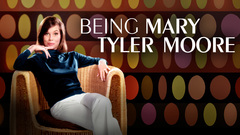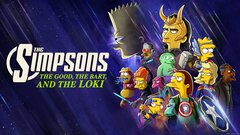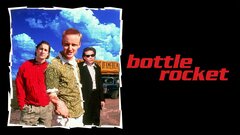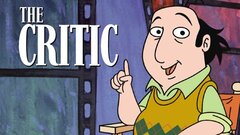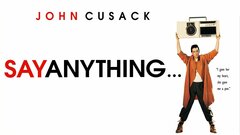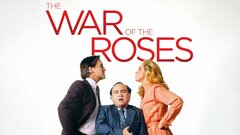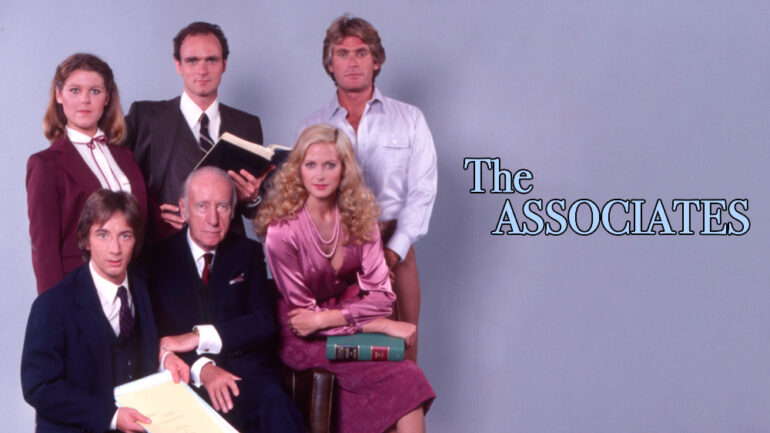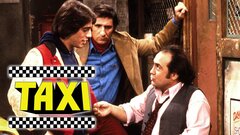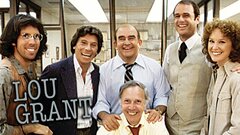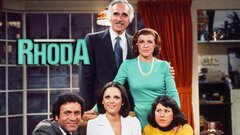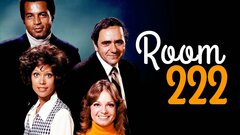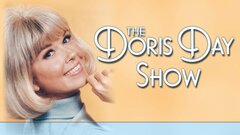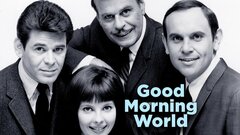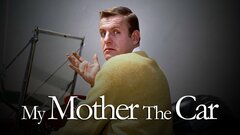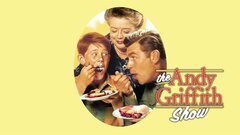Since the late 1960s, writer-director-producer James L. Brooks was a powerful comedic force on both the big screen and on television, creating multi-awarding winning fare that also proved to be smashing popular hits. After getting his start as a writer on shows like "The Andy Griffith Show" (CBS, 1960-68) and "My Three Sons" (ABC/CBS, 1960-1972), Brooks created "The Mary Tyler Moore Show" (CBS, 1970-77), a groundbreaking sitcom centered around a single, independent woman that earned several Emmy Awards and became one of the most revered programs of all time.
Brooks continued his television success with "Taxi" (ABC/NBC, 1978-1983) before experiencing Academy Award triumph with his sentimental, but not maudlin tragic-comedy, "Terms of Endearment" (1983). He followed up with "Broadcast News" (1987), a hilariously honest look at the complicated lives of people in the television news business, before creating with animator Matt Groening "The Simpsons" (Fox, 1990- ), an animated sitcom that became a cultural phenomenon and later a hugely successful movie in 2007.
He had more critical and awards success with the heartwarming romantic comedy, "As Good As It Gets" (1997), which only confirmed his unique ability to create popular fare in all mediums that was also lauded by critics.
Born on May 9, 1940 in Brooklyn, NY, Brooks was singularly raised in North Bergen, NJ by his mother, Dorothy, a saleswoman of children's clothes, after his father, Edward, a furniture salesman, left after being told his wife was pregnant. He returned when Brooks was a year old, only to leave and come back on several occasions throughout the years.
When Brooks was 12 years old, his sister, Diane, was married, after which the family never heard from their father again. Brooks managed to survive his rough childhood - one plagued by financial insecurity, as well the paternal absence - by reading and writing comedic stories, some of which he submitted to be published, only to be gently let down by positive encouragement.
When he was of age, Brooks tried his hand at higher education by attending New York University, but dropped out after only a year. He made unsuccessful attempts to create costume jewelry and worked in a safety belt factory before his sister managed to land him a job as a CBS page.
Without knowing it at the time, Brooks had stumbled upon a path that would eventually turn him into an Emmy-winning television producer and an Academy Award-winning film director.
While filling in for a vacationing CBS News copywriter who never returned to work, Brooks was given the job permanently despite not having a degree in journalism. He soon found himself writing news stories for the day's biggest stories, including the assassination of President John F. Kennedy.
Finally established in a solid career that paid well, Brooks found it a bit of a surprise when he upended his stable life to move to Los Angeles, where he began making documentaries with future uber-producer David L. Wolper beginning in 1965. After working as an associate producer on the series, "Men in Crisis," he was laid off due to budget constraints at Wolper's production company.
But his fortunes soon brightened when he met producer Allan Burns at a party, who hired the young Brooks to write for the short-lived fantasy sitcom, "My Mother the Car" (NBC, 1965-66). Once that show was off the air, Brooks wrote episodes of "That Girl" (ABC, 1966-1971), "The Andy Griffith Show" (CBS, 1960-68) and "My Three Sons" (ABC/CBS, 1960-1972), before landing a staff writing gig on Sheldon Leonard's "My Friend Tony" (NBC, 1969).
Brooks went on to become a show creator with "Room 222" (ABC, 1969-1974), a comedy-drama about a black American history instructor (Lloyd Haynes) at an integrated Los Angeles high school. Both funny and groundbreaking, the series earned an Emmy Award for Outstanding New Series in 1970.
Setting the trend for being an innovative television producer, Brooks went on to create and executive produce one of the most enduring sitcoms of all time, "The Mary Tyler Moore Show" (CBS, 1970-77), which starred Mary Tyler Moore as Mary Richards, a never-been-married, 30-something woman who is singularly focused on her career as an associate producer for the "Six O'Clock News" at station WJM-TV. For the first time in television history, a female star was depicted as single, independent and career-minded.
Also starring Ed Asner as her tough, but kind-hearted boss, Gavin MacLeod as a sensitive copy writer, and Ted Knight as the hilariously inept, but arrogant news anchor, "Mary Tyler Moore" was a huge ratings success while winning numerous Emmy Awards over the years, including three consecutive statues for Outstanding Comedy Series (1975-77).
Aside from the top ratings and numerous awards, the series was deemed by critics - often even decades later - to be one of the best TV shows of all time, while its opening credit sequence, where Moore tosses her hat into the air, was considered to be an iconic small screen moment.
Brooks feasted off the success of "The Mary Tyler Moore Show" as the executive producer and creator of spin-offs "Rhoda" (CBS, 1974-78), which starred Valerie Harper as Rhoda Morgenstein, Mary Richards' spunky, fashion-conscious neighbor, who moves back home to New York City. He next created "Lou Grant" (CBS, 1977-1982), the rare instance where a sitcom character was spun-off into a one-hour dramatic series, starring Ed Asner in a serious reprisal of his "Mary Tyler Moore" persona.
Both spin-offs were hit shows that earned awards recognition, though "Lou Grant" by far was the more successful one. Meanwhile, Brooks struck gold again with another original series, "Taxi" (ABC/NBC, 1978-1983), one of the most critically-lauded series of all time.
The show focused on a group of misfit cab drivers with personal ambitions - a dimwitted boxer (Tony Danza), a single mom with her eye on a fine arts career (Marilu Henner), a struggling pretty-boy actor (Jeff Conway), a burnt-out relic from the 1960s (Christopher Lloyd), and a strange foreigner with a language all his own (Andy Kaufman), all of whom are anchored by a compassionate career taxi driver (Judd Hirsch) and antagonized by their amoral dispatcher, Louie De Palma (Danny DeVito), once dubbed by TV Guide as being the greatest television character of all time.
Jumping over to features after a decade of enormous television success, Brooks made his acting debut with a small part on the comedy "Real Life" (1978), directed by Albert Brooks (no relation), before writing the script for director Alan J. Pakula's "Starting Over" (1979), a comic look at the aftermath of divorce between a married couple (Burt Reynolds and Candice Bergen).
Brooks spent the next four years trying to make "Terms of Endearment" (1983), which marked his first film as a director. Because no studio wanted a character drama with little-to-no plot, Brooks struggled to make the film, all the while convincing his star, Shirley MacLaine to stay on board. Finally, he moved the film - which he also wrote and produced - into production with MacLaine and Debra Winger starring as mother and daughter, respectively, who engage in a combative relationship until the latter is diagnosed with cancer.
Also starring Jack Nicholson as MacLaine's neighbor and eventual lover - a role not part of Larry McMurtry's original novel - the production was marred by MacLaine's sudden departure mid-filming over conflicts with Brooks and Winger - the latter of whom she later described as difficult to work with. Despite the long struggle in getting the film made, Brooks came out on top when "Terms of Endearment" was a box office hit and earned five Academy Awards, including statues for Best Picture, Best Director and Best Adapted Screenplay.
The sweeping success of "Terms of Endearment" allowed Brooks to establish his own production company, Gracie Films, which he named in honor of the late comedienne, Gracie Allen. He went on to more big screen success with "Broadcast News" (1987), a comic look at the television news business that provided a strong vehicle for leads Holly Hunter, Albert Brooks and William Hurt.
Once again, Brooks found himself with another critical and box office hit that garnered several Academy Award nominations, though in the end he walked away from the ceremony with a sum total of zero wins. Meanwhile, Brooks turned back to television with "The Tracey Ullman Show" (Fox, 1987-1990), a sketch variety program starring British import, Tracey Ullman, who had already been famous in her native country.
Though it was mildly successful for the then-struggling fourth network, the show became more noted for its introduction of "The Simpsons" (Fox, 1990- ), which started as animated shorts aired before commercials, which was soon spun out to a long-running animated series, created by cartoonist Matt Groening.
Brooks first became aware of Groening when he came across Life in Hell, a crudely drawn, but viciously funny comic book about a depressed rabbit named Binky, who struggles with feelings of angst and alienation while stuck in a dreary existence at a dead-end job and living in a ratty apartment. After finding an audience on "Tracey Ullman," Brooks and Groening coaxed Fox into taking a leap with a primetime animated series, a gamble that paid off in a big way after the show premiered and became not only a ratings winner, but also a cultural phenomenon - particularly as it initially centered around the mischievous son, Bart (voiced by Nancy Cartwright).
Dubbed "Bartmania," the early popularity of the character helped drive the series to big ratings, untold millions in sold merchandise, and several Emmy Awards for Outstanding Animated Program. While the show's ratings diminished over the course of its exceedingly long run, with some critics disparaging over the loss of quality episodes, "The Simpsons" remained popular enough for Fox to keep the show on at its same night and time year after year, making it the longest running TV program in history.
Turning back to features, Brooks stumbled with his third outing as director, "I'll Do Anything" (1994), which was originally filmed as a musical starring Nick Nolte and child actress Whittni Wright. But after test screenings that left audiences confused, the film was released as a comedy sans music about a talented, but out-of-work actor (Nolte) who finds himself having to care for his unpredictable five-year-old daughter (Wright).
The final result was a muddled story on screen that made little noise at the box office. Brooks bounced back, however, with his next film, "As Good as It Gets" (1997), a funny, honest and ultimately endearing romantic comedy about a successful, curmudgeonly author (Jack Nicholson), who comes to a self-realization thanks to his gay neighbor (Greg Kinnear) and a struggling waitress (Helen Hunt) trying to deal with her asthmatic son.
Hailed by critics for Brooks' return to form, "As Good As It Gets" was a smash hit at the box office before going on to earn several award nominations at the Golden Globes and Academy Awards. Though Brooks was left behind on Oscar night, both Nicholson and Hunt took home statues for Best Actor and Best Actress, respectively.
Brooks remained active through the years as a TV producer with shows like "The Critic" (Fox, 1993-95) and "Phenom" (ABC, 1993-94), while shepherding films like Wes Anderson's directorial debut, "Bottle Rocket" (1996), and Cameron Crowe's hit romantic comedy, "Jerry Maguire" (1996) to the big screen.
After maintaining his slate of long-running television projects, including "The Simpsons," which proved to be more lucrative over time, Brooks returned to motion pictures following a seven year hiatus with "Spanglish" (2004), an endearing, albeit imperfect domestic comedy about a Mexican immigrant (Paz Vega) and her daughter (Shelbie Bruce), who bring a new perspective to a fracturing couple (Adam Sandler and Tea Leoni).
At long last, Brooks and Groening also brought "The Simpsons" to movie theaters following years of active development. Though the idea of turning the show into a film occurred to them early on, Brooks and Groening were delayed due to the show's success. But starting in 2001, they began writing the script in earnest and spent the next six years making the film.
The result was "The Simpsons Movie" (2007), a glossier-than-usual animated comedy that had Homer Simpson (voiced by Dan Castellenata) save the world from a catastrophe that he had, of course, created. Following an ingenious marketing campaign that included turning several 7-Eleven stores across the nation into the series' Kwik-E-Marts and premiering the film in Springfield, VT, the movie was a huge success, earning praise from critics and taking in over $500 million worldwide.
Brooks returned to directing live action with "Everything You've Got" (2010), a romantic comedy that explored the loved lives of professional athletes, starring Paul Rudd, Reese Witherspoon and Owen Wilson.

